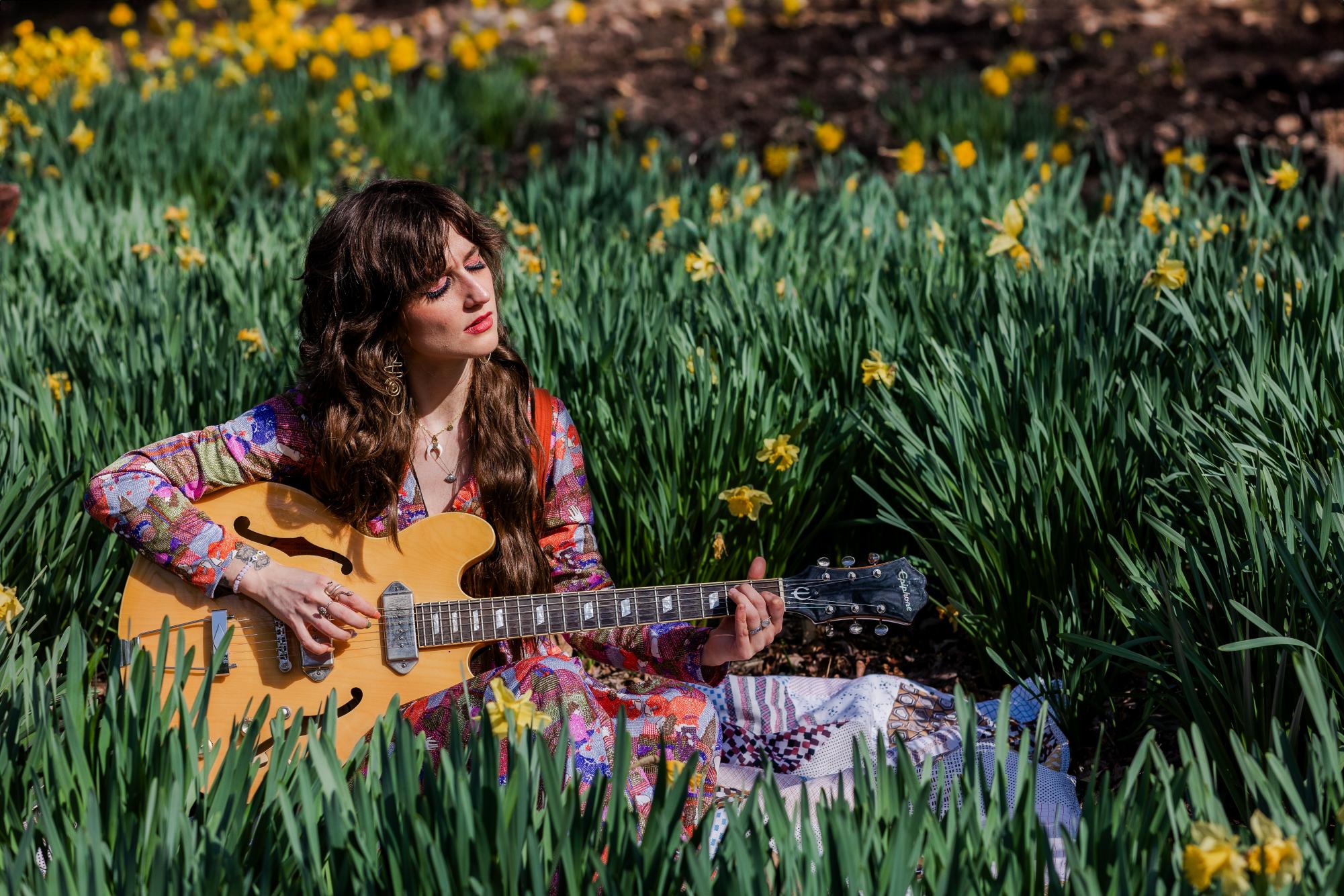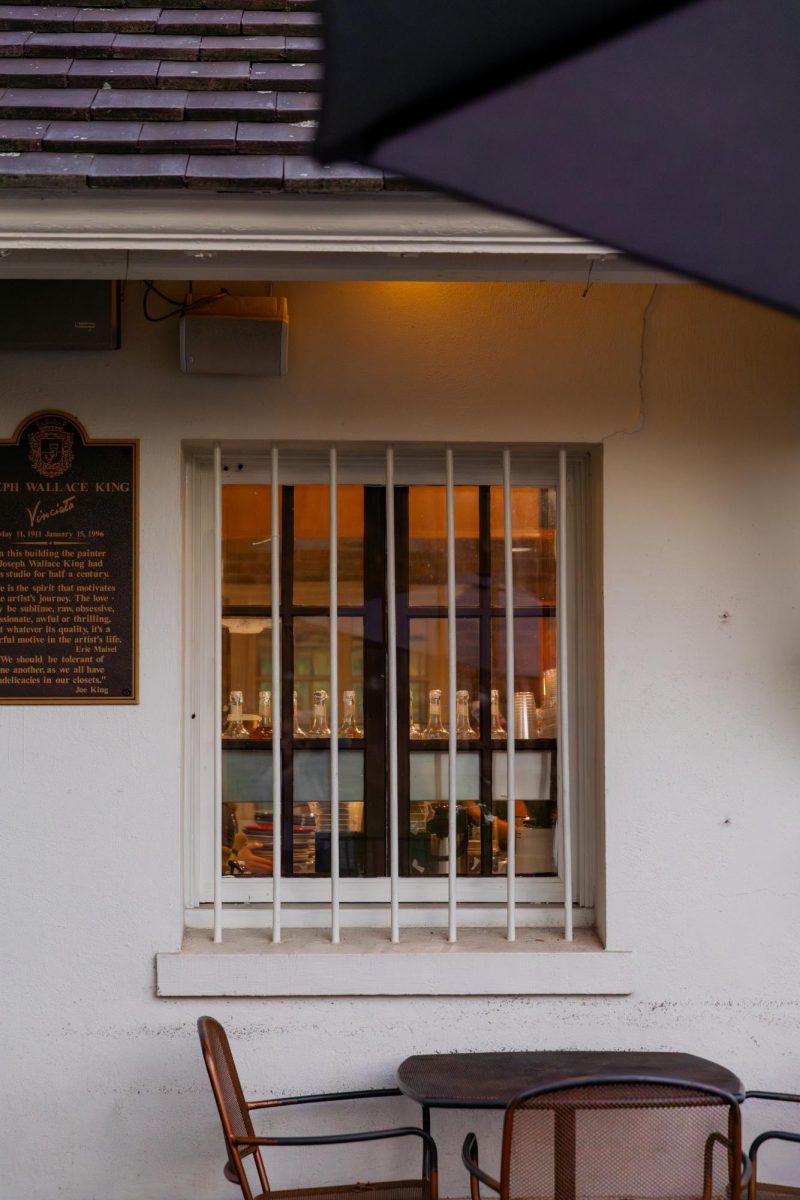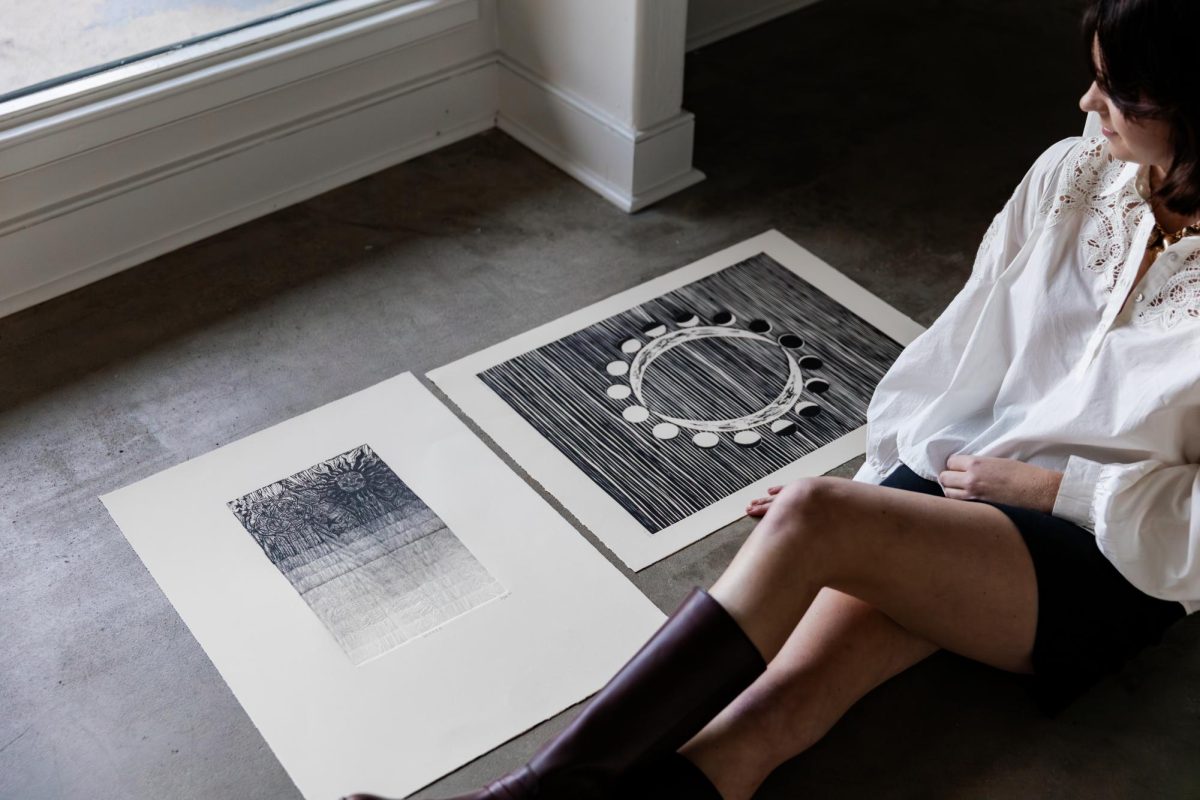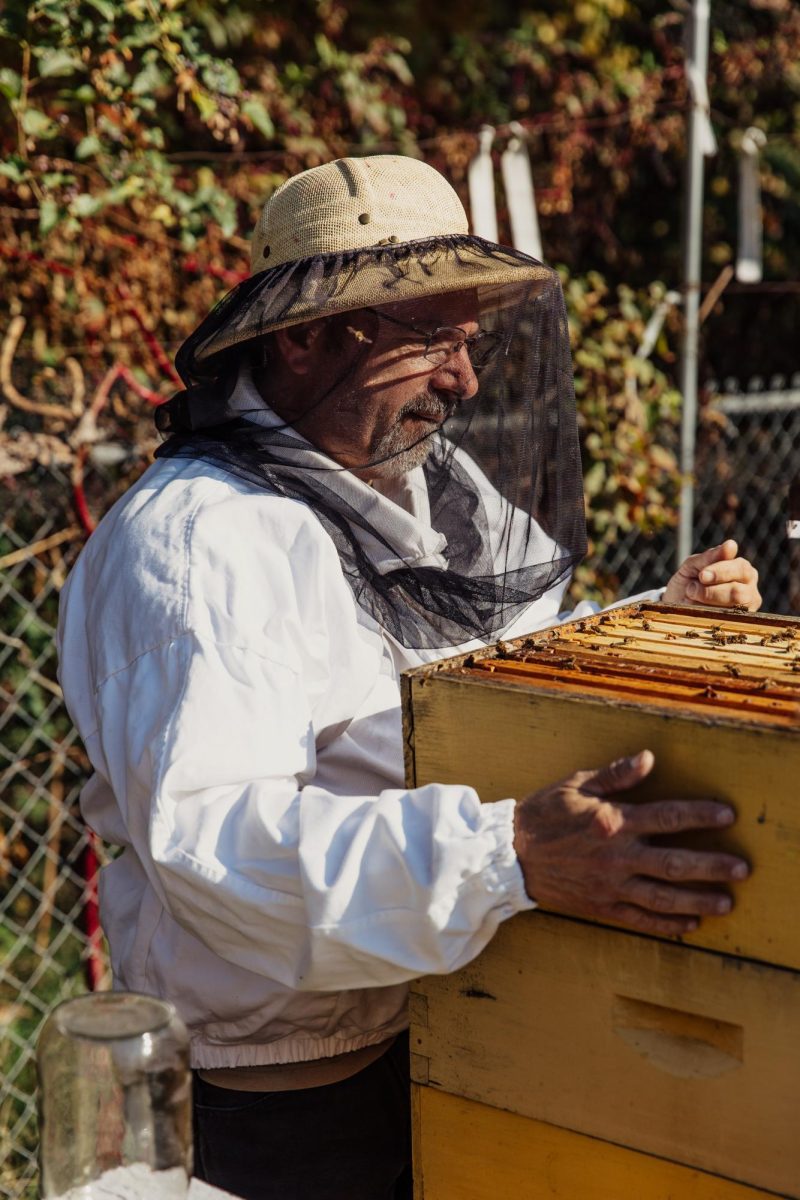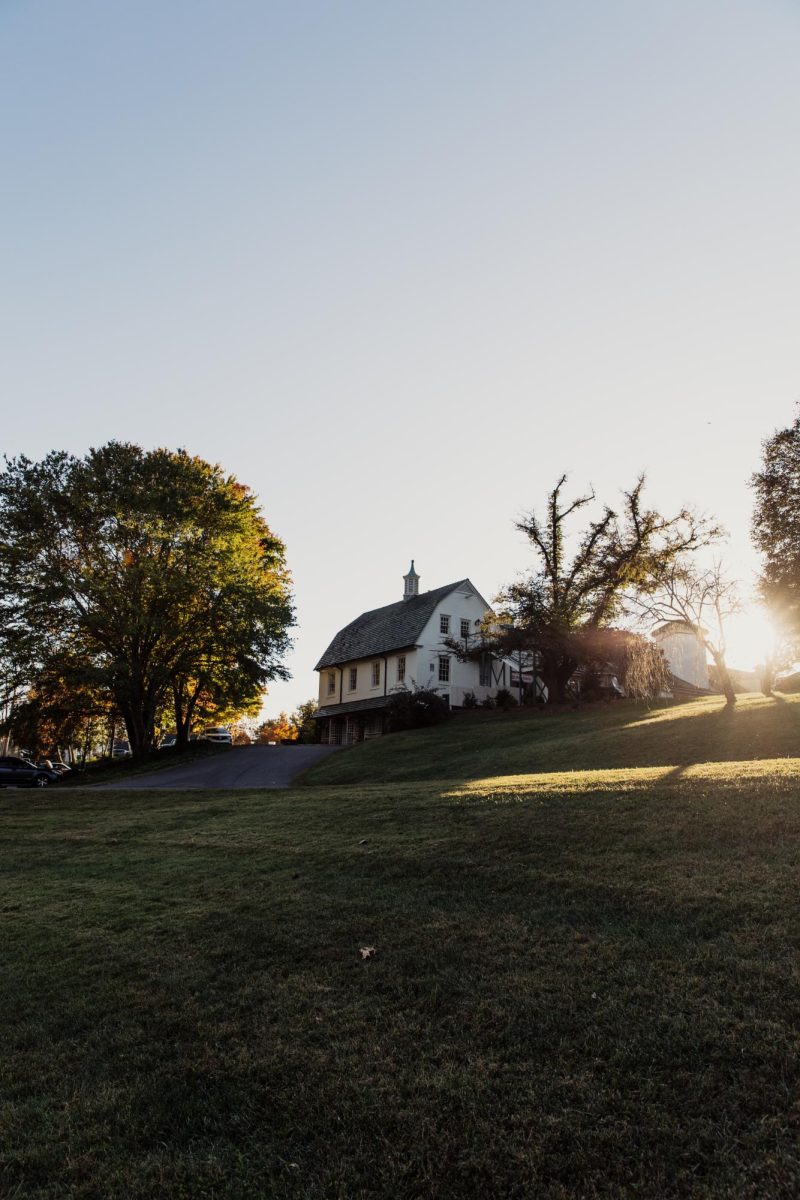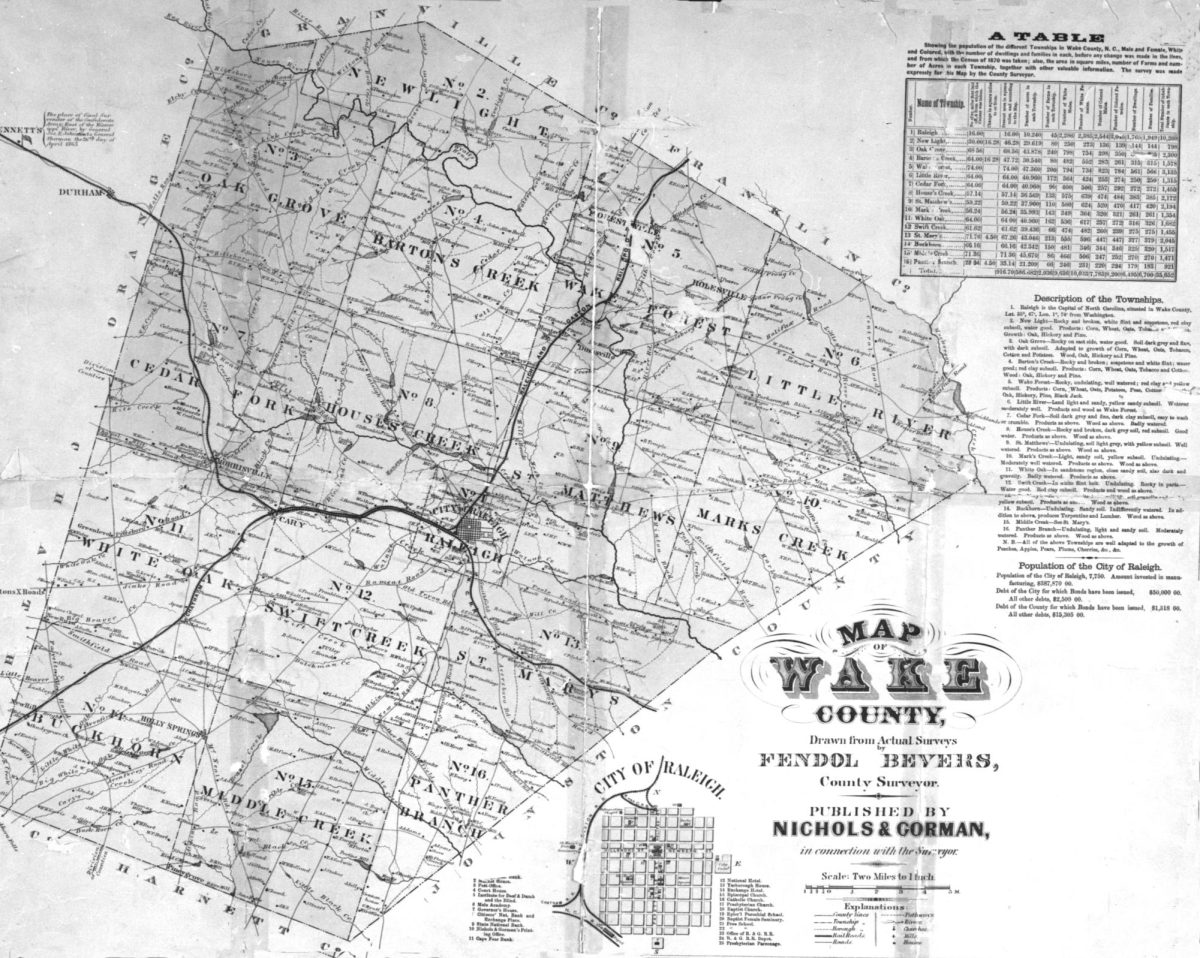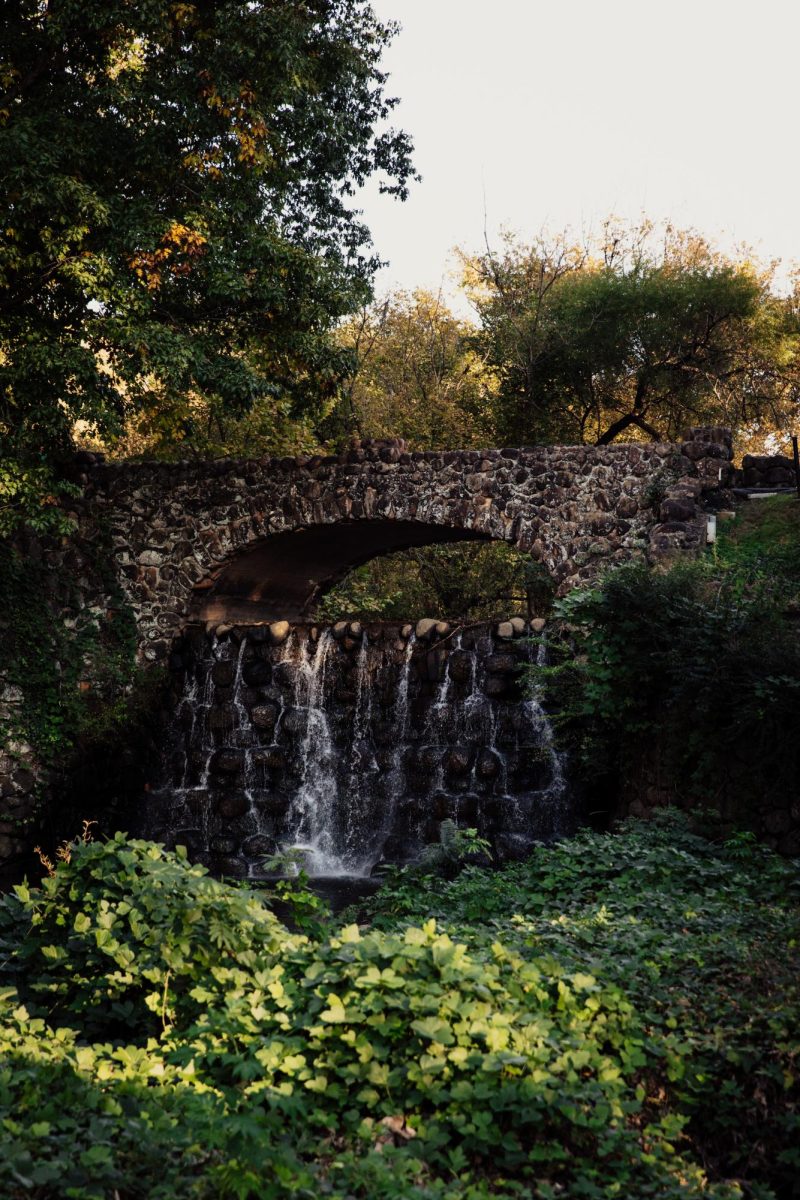Born in southern Maryland, Ashley Virginia is a singer-songwriter who now calls the Piedmont Triad home. Her unique songwriting style coupled with her innovative harmonic structure gives her a distinctive edge as an artist. Her style is reminiscent of a bygone era, somewhere between 60s rock’n’roll and 70s country. In 2021, she released her debut album “and life just goes on living,” a diary-like album with themes of mental health and socio-political commentary.
This interview has been edited for brevity and clarity.
What do you think about the music scene in North Carolina?
North Carolina is great. People forget that. There’s a real hopping music scene in Greensboro, Winston-Salem and this whole region, truly. I’ve gotten to a point with my music that I’m able to take it around and travel with it, which has been amazing. We really have something special in this area. The community is so supportive here. I don’t feel like I’m competing with the other musicians that are in my scene. It’s just friends and sharing and a lot of support. It’s been really cool to go to other places and then come back and see what we have here.
How did you get your start in music?
I grew up in church, but it’s not really an identity that I hold at this point in my life. I do appreciate the church for its part of my music education. I grew up going to church and learned to play piano from the church music director. I also did choirs and weekly communal singing. It was such a formative part of me learning how to be a musician.
I’ve been writing my own stuff probably since I was 12 or 13. I wasn’t actively performing my original music, but more so just engaging in the therapeutic process of understanding and processing the world through writing little songs. I ended up going to school for music. In college, I ended up studying music. I went to UNC-Greensboro, and first, I was a music education major before I ended up dropping out and switching to performance. The UNC Greensboro music and arts program, when I was going through it, was very classically based. I studied operatic voice and performance from a classical lens, which I’m super grateful for in terms of how it’s helped me train my voice. But there wasn’t a lot of flexibility in terms of what styles of performance they were preparing you for, and so it wasn’t really until I was graduating college, or towards the end of that program that I started doing my own music.
I was hanging out with the jazz majors and would go to these jam sessions. I started sharing my music in those spaces. There was a pretty poppin’ underground college house party scene as well. I had a band that I put together for that, and that’s when I really started playing my original music. It was 2018, and I was playing in basements for a bunch of drunk 20-year-olds.
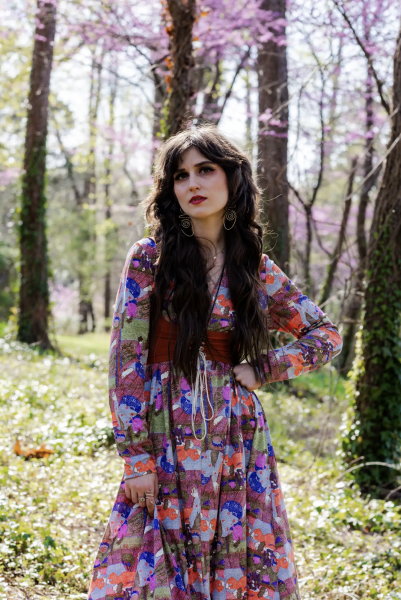
How do you think your environment influenced your music, if at all?
I would say that as a songwriter, I write from my own experience and point of view. Even when it’s writing about something else or trying to put yourself in the shoes of another person, I think we can’t help but have our own personal experiences and perspectives filtered into it. I would say it influences me in that way. It’s kind of an inevitable thing, but also the community and the collaborative sort of nature influenced it a lot.
Like I said, I’ve been writing songs for a really long time. I studied music in school, but I wasn’t originally thinking I was going to be a songwriter. I didn’t think I was going to be sharing music in that way. I would go to these jam sessions and these open mics, and my community was so supportive. People told me “You’re good at that.” Getting encouragement from the community definitely helped me take that from a process of something that was just for me to something that I started sharing with other people.
Talk to me about your songwriting process.
I would say it’s never the same thing twice or the exact same thing. Songwriting is an opportunity to engage with myself. It is a practice in the way someone practices yoga. I have the journal on me, almost always, at all times. I try to sit down with an instrument for at least a couple of minutes every day. It’s about creating opportunities to allow yourself to be a vessel for creativity. Oftentimes, I’ll sit on the porch with a guitar and just kind of noodle around until something feels good. I’ll be driving and hear a melody in my head, and I’ll pull up my voice memo and sing that melody into my phone and then visit that again later when I have time. If I think of a line that feels good, I’ll write it down in my journal. If I need to generate some lyrics I’ll set a timer for 10 minutes and write everything that I can think of on a page and then use that as source material later. Those kinds of exercises — being open to creativity when the lightning strikes — and finding different ways to invite yourself into that mindset. Sometimes the song reveals itself.
My songwriting teacher Mark would tell us that you have to give yourself permission to suck. You have to write every day. Some of it ends up being awesome and some of it never leaves my brain or my journal. You have to write bad songs to write good songs. When you lose the fear of being bad at something, you stop questioning your intuition, and you can just be a vessel.
What musicians influence you most? What genres inspire you?
Laurel Canyon, Joni Mitchell and Linda Ronstadt. Growing up I was a big listener to The Beatles. Paul McCartney, specifically, had a huge influence on me. I took a songwriter class at the end of college with Mark Dillon, who is a musical renaissance man in this area. That was the first time that I had properly studied songwriting, and I got some formal tools for how to do that. So he’s a big inspiration for me. I really admire those of the ’60s and ’70s era, but in terms of modern songwriters, Adrianne Lenker of the band Big Thief is probably two of my greatest influences.
Talk to me about working with other artists and bands. What does that look like for you?
I do love to play with a band. Lately, I’ve been doing it less because I want to advocate and make sure that if I’m going to have a gig, everyone is getting paid what they’re worth. If the gig doesn’t pay enough for me to bring a band and pay everyone what I think is a fair rate, I will do it by myself. I have a residency gig in Greensboro at this brewery where we do folk songwriter sessions. It is three Sundays a month. I play by myself at that, but each week, I have a different songwriter join me as a guest, and we perform what’s called ‘in the round’ style. Both of us will be on stage at the same time, and we’ll go back and forth taking turns. Sometimes it ends up being this on-the-fly collaboration with harmonies. It’s a cool way to get to know another musician and to get to know another person’s writing in that format. I play in songwriter rounds a lot because of that residency gig.
Genre-wise, my music can be soft and delicate, but with the right instrumentation, and folks backing me up, it can also get pretty psychedelic and rock-and-roll. I like to do a little bit of everything. I’ve started touring this past year, and I’m at a point in my career where I can travel. I hope soon in the next year or so to start booking gigs where I can afford to take a band with me and make sure that everyone is taken care of and paid what they’re worth.
Tell me more about The Lab and the nature of these projects. Where is that hosted?
The Lab is hosted by the DOS Artists Collective and it’s this showcase multidisciplinary art sort of event. They’ll have musicians, and dancers will perform. It’s a super cool underground art space and it’s in a parking garage with Winston Salem, the first Monday of every month. It’s super accessible for whoever wants to attend.
Tell me about your next projects. What do the coming months look like?
This year is going to be a busy one in terms of releases for me. I just put out a record on Feb. 16 that was grant-funded back in 2022. I got funding from the North Carolina Arts Council and the Arts Council of Greensboro to do a recording session. I got to take a bunch of friends and collaborators, and we all lived on this farm for a week. I have a bunch of new songs that I have been working on too, and I have an EP from those songs that I will drop sometime in the spring. I did a recording session back in December, and I recorded 11 songs during that session. I’ll release a handful of those in the spring, and then the rest of them in the fall. In April, I am going to go live in Tennessee for the month. I have an artist residency at this place called the Tree House of Center Hill, so I’ll be out there.

